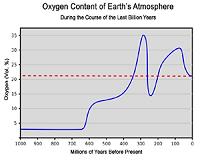| . |  |
. |
Iowa City IA (SPX) Aug 05, 2010 Increasing the ratio of black carbon to sulfate in the atmosphere increases climate warming, suggests a study conducted by a University of Iowa professor and his colleagues and published in the July 25 issue of the journal Nature Geoscience. Black carbons arising from such sources as diesel engine exhaust and cooking fires are widely considered a factor in global warming and are an important component of air pollution around the world, according to Greg Carmichael, Karl Kammermeyer Professor of Chemical and Biochemical Engineering in the UI College of Engineering and co-director of the UI's Center for Global and Regional Environmental Research. Sulfates occur in the atmosphere largely as a result of various industrial processes. Carmichael's colleagues in the study were V. Ramanathan and Y. Feng of Scripps Institution of Oceanography, La Jolla, Calif.; S-C. Yoon and S-W. Kim of Seoul National University, South Korea; and J. J. Schauer of the University of Wisconsin, Madison. In order to conduct their study, the researchers made ground-level studies of air samples at Cheju Island, South Korea, and then sampled the air at altitudes between 100 and 15,000 feet above the ground using unmanned aircrafts (UAVs). They found that the amount of solar radiation absorbed increased as the black carbon to sulphate ratio rose. Also, black carbon plumes derived from fossil fuels were 100 percent more efficient at warming than were plumes arising from biomass burning. "These results had been indicated by theory but not verified by observations before this work," Carmichael said. "There is currently great interest in developing strategies to reduce black carbon as it offers the opportunity to reduce air pollution and global warming at the same time." The authors suggest that climate mitigation policies should aim to reduce the ratio of black carbon to sulphate in emissions, as well as the total amount of black carbon released. In a paper published in May 2008 in Nature Geoscience, Carmichael and Ramanathan found that black carbon soot from diesel engine exhaust and cooking fires - widely used in Asia - may play a larger role than previously thought in global warming. They said that coal and cow dung-fueled cooking fires in China and India produce about one-third of black carbon; the rest is largely due to diesel exhaust in Europe and other regions relying on diesel transport. The paper also noted that soot and other forms of black carbon could equal up to 60 percent of the current global warming effect of carbon dioxide, the leading greenhouse gas. Carmichael is chair of the scientific advisory group for the World Meteorological Organization's GURME (Global atmospheric watch Urban Research Meteorology and Environment) project and chair of the scientific advisory group for the Shanghai Expo pilot project on air quality forecasting. He has worked with Shanghai authorities for three years to help develop an early warning system for air quality problems and heat waves.
Share This Article With Planet Earth
Related Links University of Iowa The Air We Breathe at TerraDaily.com
 Oxygen Fuels The Fires Of Time
Oxygen Fuels The Fires Of TimeLondon, UK (SPX) Aug 03, 2010 Variations in the Earth's atmospheric oxygen levels are thought to be closely linked to the evolution of life, with strong feedbacks between uni- and multicellular life and oxygen. Over the past 400 million years the level of oxygen has varied considerably from the 21% value we have today. Scientists from The Field Museum in Chicago and Royal Holloway University of London publishing their ... read more |
|
| The content herein, unless otherwise known to be public domain, are Copyright 1995-2010 - SpaceDaily. AFP and UPI Wire Stories are copyright Agence France-Presse and United Press International. ESA Portal Reports are copyright European Space Agency. All NASA sourced material is public domain. Additional copyrights may apply in whole or part to other bona fide parties. Advertising does not imply endorsement,agreement or approval of any opinions, statements or information provided by SpaceDaily on any Web page published or hosted by SpaceDaily. Privacy Statement |